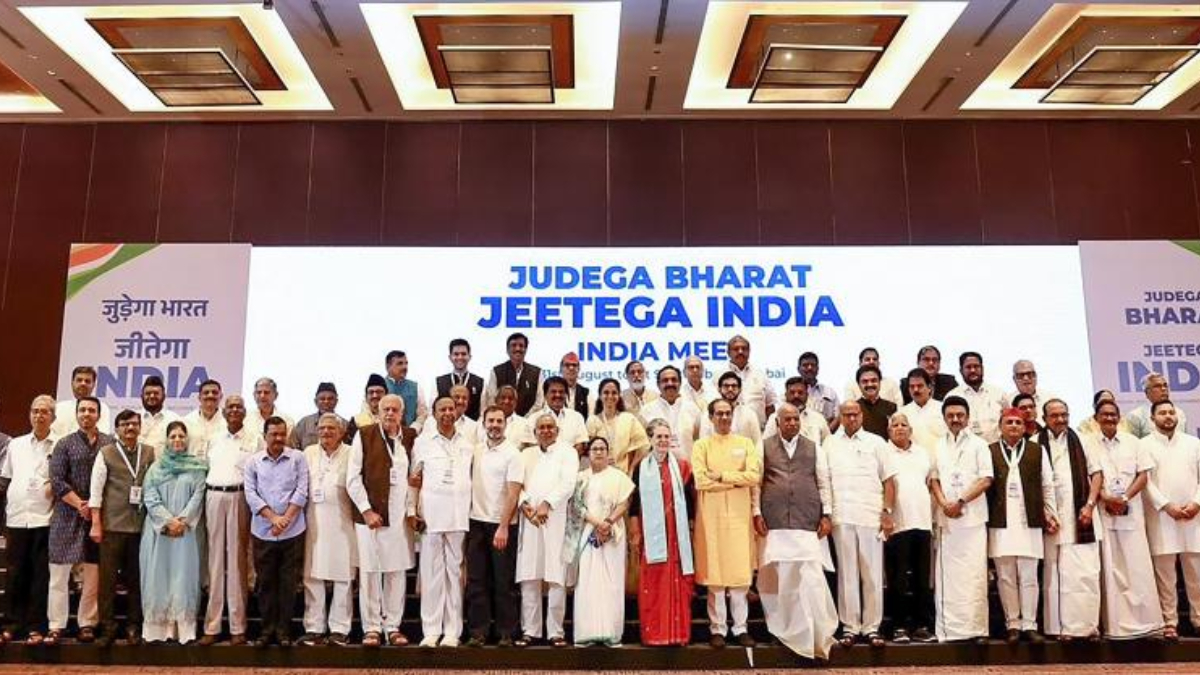After a decade of crushing defeats, political rivalry, and leadership issues, 2024 was a year of solace for the Congress and the Opposition. But the jubilation over denying the BJP its solo majority in the 2024 Lok Sabha election, which enabled the Congress and the Opposition to regain a bigger political space in national politics, has proved short-lived as the INDIA bloc now faces challenges in maintaining unity. Even before the Congress and the Opposition alliance could consolidate the gains of their credible performance in the general election, the coalition suffered serious electoral reverses in the Haryana and Maharashtra assembly elections. As a result, internal rifts in the INDIA bloc have deepened, raising fresh questions about the coalition’s leadership and coordination.
As differences within the coalition have come out in the open, doubts about its survival have grown, and this disunity can only weaken the alliance. For instance, during the recent winter session of Parliament, parties like the Trinamool Congress (TMC) and the Samajwadi Party (SP) took positions divergent from the Congress on issues they wanted to discuss in the House. After Mamata Banerjee’s sharp criticism of the Congress’ leadership of the INDIA bloc, leaders from the Sharad Pawar-led Nationalist Congress Party, the Uddhav Thackeray-led Shiv Sena, and the SP criticised the Congress for its inability to lead the alliance effectively, suggesting that TMC supremo Mamata Banerjee should helm the Opposition’s coalition.
These regional parties have criticised the Congress for its ‘big brother’ attitude and expressed concerns over its inability to defeat the BJP in direct one-on-one contests. The twin defeats in Haryana and Maharashtra not only muted the coalition’s victories in Jammu & Kashmir and Jharkhand but also exposed cracks within the INDIA bloc, with some alliance partners questioning Rahul Gandhi’s ability to lead the fight against Prime Minister Narendra Modi and his party. The losses in Haryana and Maharashtra have highlighted the simmering tensions and conflicting interests that were temporarily frozen in the euphoria over the Lok Sabha results. So, is the INDIA bloc falling apart?
It is too early to speculate whether the Opposition alliance will recoup or wilt away, but the momentum the Opposition and the Congress gained after the general election has been lost. While the alliance’s composition is marked by contradictions and conflicting interests, their shared goal of defeating the BJP has been the adhesive holding the allies together so far. However, ambitions, egos, and turf rivalries make them uneasy allies, especially for regional parties like the TMC, SP, and Aam Aadmi Party, where a rebounding Congress is a bigger electoral threat than the BJP.
Given the Congress’s poorer performance in direct contests with the BJP over the past decade, its debacle in recent state elections has given regional parties a fresh opportunity to indulge in the claim-and-blame game. Earlier in June, they expressed displeasure with the grand old party claiming credit for the INDIA bloc’s general election success, attributing it largely to Rahul Gandhi’s leadership and the impact of his Bharat Jodo Yatra. While the Congress is the largest party in the alliance and has a national presence, this presence is stretched too thin to be electorally effective in many states.
The Congress’ tally of 99 seats in the bloc’s total of 234 helped the party secure the Leader of Opposition post for Rahul Gandhi in the Lok Sabha. However, regional parties feel the BJP’s failure to secure a parliamentary majority was largely due to their efforts in halting the saffron party’s surge, while the Congress’s success was largely because of piggybacking on allies, given its poor performance in most states where it faced the BJP directly—Gujarat, Madhya Pradesh, Assam, Chhattisgarh, Uttarakhand, Himachal Pradesh, and Delhi. Even in Karnataka and Telangana, the BJP performed better than the Congress. On the other hand, INDIA bloc regional parties like the TMC, SP, and DMK had a better strike rate against the BJP in their respective states.
The Congress’ claim to leadership had been questioned even in the formative days of the alliance. Now, some regional parties are questioning that claim more openly and loudly, and the leadership issue is likely to come into greater focus in the future. With Mamata Banerjee seeking a larger role for herself in the coalition and some allies cheering her on to lead the alliance, the Congress is on the back foot—though not isolated—as some bloc constituents have refrained from taking sides so far. As the INDIA bloc grapples with leadership questions, the alliance’s unity could be at risk amid the diverging priorities of its constituents.
The alliance is currently struggling to find common ground to fight the BJP both inside and outside Parliament. The outcome of the Delhi election will likely clarify the cracks within the alliance. In any political alliance, partners need not agree on every issue, but there must be common ground on many issues, and this commonality must have a stronger basis than their shared opposition to the BJP. Mere opposition to the ruling party and government may not keep the Opposition united. Differences over leadership and a show of disunity will weaken the INDIA bloc. The alliance must navigate internal tensions and reach a consensus on its leadership to effectively challenge the BJP in the upcoming assembly elections this year.
The writer is a senior independent Mumbai-based journalist. He tweets at @ali_chougule
